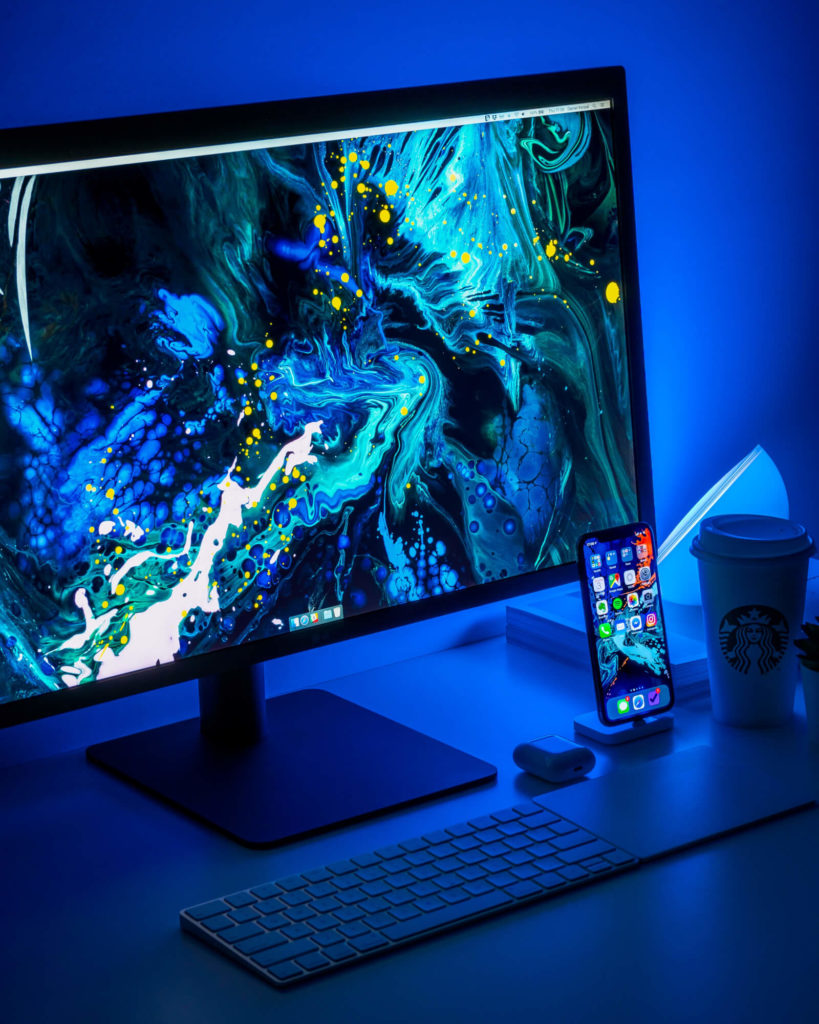When you stare at a computer, TV, or phone screen for several hours at a time, you’re exposed to blue light emitted from these devices. All light rays are not created equal. Blue light is the kind of light that is emitted from your laptop, TV, and smartphone. It carries numerous vision and health risks that you have to know about.
What is Blue Light?
We know that sunlight is made up of orange, red, yellow, blue, green, indigo and violet light. All of them have different energy and wavelengths. And when combined, it becomes the regular white light that we see. Rays present on the red end of the light spectrum tend to have longer wavelengths and, hence, less energy. Blue rays, on the other end, have shorter wavelengths and more energy.
Blue light is natural, and most of us are exposed to it on a daily basis in the form of sunlight. However, human-made inventions, such as fluorescent lighting, flat-screen TVs and smartphones, deliver a more intense dose of blue light rays compared to what you would get from the sun.
The proliferation of energy-efficient lighting and electronics with screens are increasing our exposure to blue wavelengths, particularly after sundown.
Dangers
Unlike other kinds of light on the natural light spectrum, blue light has high-energy rays that are able to penetrate the eyes and hit the retina without being filtered out, which is a cause of concern. According to experts, this is likely to damage your retinas over time.
In addition, you should keep in mind that too much exposure to blue light can create symptoms very similar to those of macular degeneration, which is a serious eye disease that can lead to blindness in some cases. Blue light rays can also cause sunburned eyes — a condition also called snow blindness or photokeratitis.
Moreover, blue light rays from your computer screen, phone, tablet, and other digital devices may decrease contrast, which can lead to digital eyestrain. Also, note that fatigue, bad lighting, dry eyes, or the way you sit in front of your computer may cause eyestrain.
Mounting evidence indicates that blue light has a dark side. Blue light rays can suppress the secretion of melatonin at night and wreak havoc on your circadian rhythms, and the latest research studies have indicated that extended blue light exposure can damage your retina. Excessive exposure to blue light rays can also lead to disturbances in sleep cycles.
Protect Your Eyes from Blue Light
There are some simple ways to decrease your exposure to blue light:
Filters
You can use screen filters available for tablets, smartphones, and computer screens to protect your eyes.
Apps
If you use a lot of electronic devices at night or work a night shift, consider installing an application that filters the blue/green wavelength at night.
Anti-reflective Lenses
This is another good option. Anti-reflective lenses can help reduce glare and increase contrast. They also block blue light rays from the sun as well as digital devices.
Final Thoughts
Speak with an eye care professional about ways to protect your eyes from blue light.




